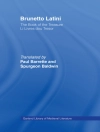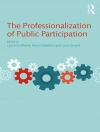‘H. G. Wells and All Things Russian’ is a fertile terrain for research and discussion and this volume will be the first to devote itself entirely to the theme. Wells was an astute student of Russian literature, culture and history, and Russians, in turn, became eager students of Wells’s views and works (Yuly Kagarlitsky, a Soviet biographer of Wells, called him ‘a one-man think tank’). During the Soviet years, in fact, no ‘big’ foreign author was safer for Soviet critics to praise than H. G. Wells. The reason was obvious. He had met – and approved of – Lenin, was a close friend of the Soviet literary giant Maxim Gorky and, in general, expressed much respect for Russia’s evolving Communist experiment, even after it fell into Stalin’s hands.
Wells’s views on the Soviet Union were often more complex than Soviet critics gave him credit for, but their whitewashing only served to secure his position as a sympathetic man of letters from the capitalist world. On the other hand, those who discerned his nuanced position towards totalitarian regimes, including the dystopian writer Evgeny Zamyatin, the author of an early Soviet study of Wells, found him to be a soulmate and an influence of a different kind, which worked to increase the English author’s popularity among those segments of the Russian reading public for whom his relationships with Lenin and Gorky meant very little.
Jadual kandungan
Introduction: ‘The Wells Effect’, Galya Diment; WELLS IN RUSSIA PRE-WORLD WAR II; 1. Yevgeny Zamyatin and the Wellsian Utopia, Maxim Shadurski; 2. Time Machines and Metamorphoses: H. G. Wells’s Influence on Mikhail Bulgakov and Sigizmund Krzhizhanovsky, Muireann Maguire; 3. ‘The Wellsian Twist’ in Nabokov’s ‘Terra Incognita’, Zoran Kuzmanovich; POST WORLD WAR II; 4. ‘Unregenerate Mass Nature’ in H. G. Wells and the Brothers Strugatsky, Richard Boyechko; 5. Culturology: Yuly Kagarlitsky’s Life of Wells, Patrick Parrinder; 6. ‘Come and Visit Us in Ten Years’ Time!’: Representation of H. G. Wells on the Russian Stage and Screen, Olga Sobolev and Angus Wrenn; RUSSIA IN WELLS; 7. Russia and H. G. Wells’s ‘Babes in the Darkling Wood’, David Rampton; 8. Wells and Gorky, Ira Nadel; 9. Odette Keun versus H. G. Wells on Russia, Galya Diment; Appendix. Translations; 1. V. D. Nabokov on Visiting Wells in England in 1916 (trans. Galya Diment); 2. Alexander Amfiteatrov on Wells’s Visit to Russia in 1920 (trans. Veronica Muskheli); 3. Alexander Belyaev on the Wells-Lenin debate about ‘Utopias’ (trans. Galya Diment); 4. Karl Radek and Solomon Lozovsky to Stalin (trans. Galya Diment); 5. Yury Olesha on His Love for Wells (trans. Galya Diment); 6. Yuly Kagarlitsky on Being a Soviet Biographer of Wells (trans. Veronica Muskheli); Bibliography; Index.
Mengenai Pengarang
Galya Diment is the Byron W. and Alice L. Lockwood Professor in the Humanities at the University of Washington, USA, where she teaches Russian and comparative literature. The author of The Autobiographical Novel of Co-Consciousness: Goncharov, Woolf and Joyce (1994), Pniniad: Vladimir Nabokov and Marc Szeftel (1997, 2013) and A Russian Jew of Bloomsbury: The Life and Times of Samuel Koteliansky (2011, 2013), Diment has published more than fifty articles. In addition, she has edited/co-edited Between Heaven and Hell: The Myth of Siberia in Russian Culture (1993), Goncharov’s ‘Oblomov’: A Critical Companion (1998), MLA Approaches to Teaching ‘Lolita’ (2008) and Katherine Mansfield and Russia (2017). Her articles have also appeared in the Times Literary Supplement, the London Magazine and New York Magazine.












